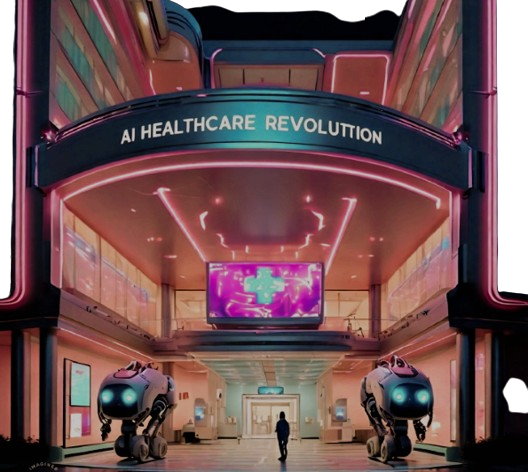AI Healthcare Revolution
AI Healthcare Revolution
AI transforms healthcare, improving patient outcomes and revolutionizing the industry.
The healthcare sector is poised for a transformative shift, fueled by the unprecedented progress in Artificial Intelligence (AI) capabilities, which promises to reshape the landscape of medical care and patient outcomes. AI is transforming the way healthcare is delivered, making it more accessible, efficient, and personalized. From diagnosis to treatment, AI is revolutionizing every aspect of healthcare.
One of the significant applications of AI in healthcare is medical imaging analysis. AI algorithms can analyze X-rays, CT scans, and MRI scans more accurately and quickly than human radiologists. This enables early detection and diagnosis of diseases, improving patient outcomes.
AI-powered chatbots are also transforming patient engagement. These chatbots can provide personalized health advice, answer medical queries, and even help patients schedule appointments. This improves patient experience and reduces the workload of healthcare professionals.
AI is also revolutionizing drug discovery. AI algorithms can analyze vast amounts of data to identify potential drug targets, design new drugs, and predict their efficacy. A technological upheaval is imminent in the healthcare industry, driven by the remarkable evolution of Artificial Intelligence, which is set to redefine the future of medical practice and patient care.
Furthermore, AI is improving patient safety by identifying potential drug interactions and allergic reactions. AI algorithms can analyze a patient’s medical history and genetic profile to predict adverse reactions, enabling healthcare professionals to take proactive measures.
The AI healthcare revolution is not without its challenges, however. Ensuring data privacy and security is critical, as AI algorithms require access to vast amounts of sensitive patient data. Additionally, there are ethical concerns surrounding the use of AI in healthcare, such as ensuring accountability and transparency in AI-driven decision-making.
In conclusion, the AI healthcare revolution has the potential to transform the healthcare industry, improving patient outcomes, reducing costs, and enhancing the overall quality of care. As AI continues to evolve, it is essential to address the challenges and ethical considerations surrounding its adoption in healthcare.
